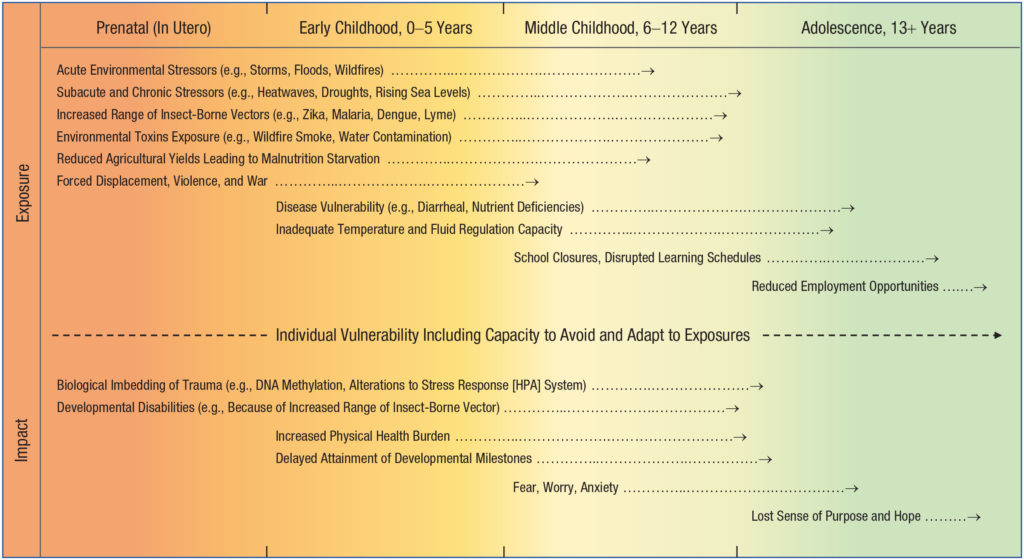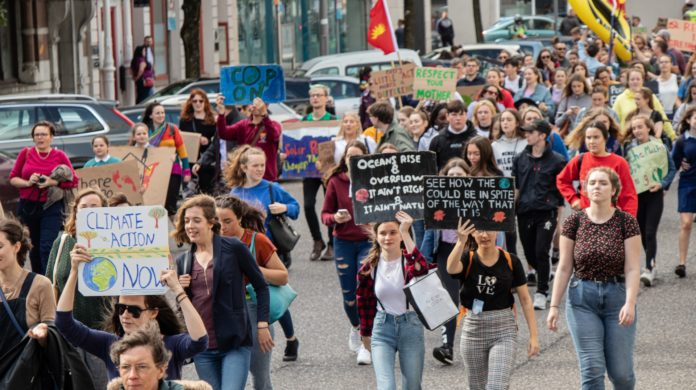Climate change is bad for our bodies and our minds, and according to researchers from the University of Montreal, these negative effects may begin before birth. What’s more, these climate change-related threats accumulate over time — and children are facing the greatest risks.
A new study on the particular risks faced by children was led by Francis Vergunst, a postdoctoral researcher in public health at the University of Montreal, and published in Clinical Psychological Science.
“Ecological grief” has a unique impact on children
In recent years, ecological grief has become a growing mental health concern amidst the ongoing climate crisis. While the effects of climate change on mental health are increasingly well-documented, Vergunst and co-author Helen Louise Berry noticed that its particular impact on children’s mental health hasn’t received as much attention — despite the fact that children will have to deal with the climate crisis for the rest of their lives.
The authors also note that most psychiatric disorders begin in childhood, and climate change-related stress will likely impact how these disorders arise.
To learn more, the researchers carried out a literature review with the aim of looking at climate change-related mental health risks from a developmental perspective. This means that they considered how different factors relating to climate change would affect children’s development, and how these factors would continue to impact them over time.
The researchers considered four different periods in children’s development: the prenatal period, early childhood, middle childhood, and adolescence. For each period, they gathered studies on both direct and indirect threats to children’s mental health.
For example, worry and anxiety about the climate crisis are a direct mental health threat, while increased air pollution caused by climate change is an indirect threat that can impact children’s physical health and in turn negatively impact their mental health.
After gathering studies on these mental health threats, the researchers then considered how different threats present during the same developmental period could compound, leading to an even greater risk on children’s mental health.

Unfortunately, their results are bleak. The researchers found that there are numerous climate change-related threats to children’s mental health that would emerge before they’re even born — and as climate change continues throughout their lives, this impact will only get larger.
“The threats associated with climate change can additively, interactively and cumulatively increase the risk of [mental health issues] in the young, starting at conception and continuing right through to adulthood,” the authors explained in a press release.
In the prenatal period, these risks are primarily risks to the mother’s mental health which can in turn affect the psychological development of the child. Climate change can lead to anxiety in the mother, which increases the chance that the child will develop mood or anxiety disorders.
As children later begin to develop a better awareness of the world around the — as well as the impact climate change is having on that world — their risks of anxiety will only increase.
“[This] new awareness can generate stress, despair and anxiety, not to mention anger toward previous generations,” Vergunst explained.
How can we help children safeguard their mental health?
The authors conclude their study by discussing how we can help children who are facing mental health challenges due to climate change.
They stress that long-term studies of children’s mental health will be crucial in truly understanding how these threats accumulate over time. While the authors were able to find studies that investigated particular mental health risks at particular points in children’s development, studies that begin before birth and follow the same children throughout their lives will result in a much clearer picture of the long-term threats posed by climate change.
In the short term, the authors also suggest that we involve children in discussions and actions around climate change. This will not only help them understand these issues, but will also allow them to feel like they have control over the issues that will affect them in the future.
“Let’s make young people feel like they’re part of the solution,” Vergunst said. “Not helpless victims of a future that looks like a train wreck in slow motion.”





































